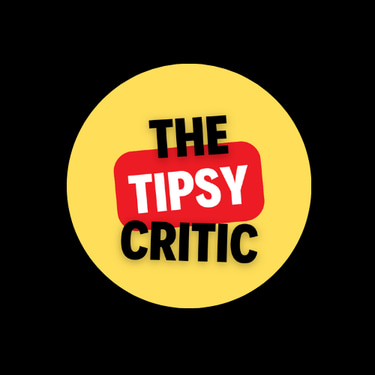“Your home for fearless film reviews, the latest entertainment news, and unfiltered movie rants.”
Taylor Swift Legal Battle Explained: The $400 Million Lawsuit Linking Blake Lively, Justin Baldoni, and ‘It Ends With Us’
The Tipsy Critic
5/12/2025

The film industry is no stranger to controversy, but the recent $400 million lawsuit involving Taylor Swift, Blake Lively, and It Ends With Us director Justin Baldoni is a spectacle that’s impossible to ignore. What started as an adaptation of a bestselling romance novel has now turned into a complex legal battle involving personal boundaries, creative interference, and the potential fallout of Hollywood’s evolving power dynamics.
The Legal Drama Unfolds: A Lawsuit That’s Turning Heads
It Ends With Us, the 2024 film adaptation of Colleen Hoover’s novel, was anticipated to be a major hit. However, what was once a high-profile romance movie is now embroiled in a multimillion-dollar lawsuit that has the entire entertainment industry buzzing.
At the heart of the controversy is director Justin Baldoni, who is suing lead actress Blake Lively, her husband Ryan Reynolds, and her publicist. The lawsuit alleges civil extortion, defamation, and invasion of privacy. While this might seem like the typical Hollywood drama, it’s the details of the case that have raised eyebrows.
Baldoni’s lawsuit centers around allegations that Lively pressured him to alter a crucial rooftop scene in the movie. According to Baldoni, this change occurred during a meeting at Lively’s home in 2023, where Lively was joined by her husband, Ryan Reynolds, and pop superstar Taylor Swift. The lawsuit suggests that these changes were made with the intention of influencing the movie’s final product, putting Baldoni in a difficult position as a director. Baldoni’s team claims that this external influence went beyond creative collaboration, affecting the film’s direction and ultimately the final cut.
However, Swift’s legal team has been quick to clarify her involvement, asserting that Swift’s role was limited to licensing her song “My Tears Ricochet” for the film. A spokesperson for Swift issued a statement, emphasizing that she had no role in the film’s production or creative decisions. Despite this clarification, Baldoni’s legal team has subpoenaed Swift, making her a key figure in the case.
Blake Lively’s Counterattack: Allegations of Sexual Harassment
As if the legal drama surrounding Baldoni and Lively weren’t already explosive, the situation took another turn when Lively filed a countersuit against Baldoni, accusing him of sexual harassment. She has also reported Baldoni to California’s civil rights commission for his alleged conduct during the film’s production.
Lively’s team has gone on to accuse Baldoni of retaliation, claiming that fake social media accounts were created to discredit her and undermine her credibility in the public eye. The situation has now evolved from a creative dispute into a full-blown personal and professional conflict.
One particularly shocking proposal in Baldoni’s legal filings has drawn significant attention: he has suggested that Lively’s deposition be streamed live from Madison Square Garden, with ticket proceeds going to domestic violence victims. This move has been widely criticized by Lively’s representatives, who described it as nothing more than an attempt to turn a legal matter into a public spectacle.
The Role of Taylor Swift: More Than Just a Song?
Although Swift’s direct involvement in the film’s production is minimal, her subpoena has raised questions about the influence celebrities have over major film productions. In this case, her relationship with Lively and Reynolds has brought her into a complicated web of accusations and counterclaims.
Swift, known for her careful public persona and her strategic decisions, has managed to remain largely untouched by the inner workings of Hollywood’s creative processes. However, as the subpoena suggests, even the most peripheral involvement in high-profile projects can draw someone into the spotlight in unexpected ways. The subpoena serves as a stark reminder of how intertwined personal relationships and professional dealings are in the modern entertainment industry.
Hollywood’s Changing Power Dynamics
What this lawsuit reveals is not just a personal feud, but a reflection of the growing influence of Hollywood’s elite. With figures like Swift, Reynolds, and Lively involved, this case highlights the delicate balance between creative professionals and celebrity power. In the past, filmmakers and directors like Baldoni held the reins when it came to creative decisions. Now, however, with the emergence of mega-celebrities and influencers with direct access to large platforms, the lines between creative vision and public influence are becoming increasingly blurred.
This lawsuit also brings to light the financial pressures that accompany large-scale film productions. It Ends With Us was expected to be a blockbuster hit, and the stakes of its success have only intensified as the lawsuit unfolds. With Baldoni’s team claiming that the changes to the film’s script and direction may have compromised its integrity, the long-term effects of this legal battle could go far beyond a single movie. It could set a precedent for how future Hollywood productions are influenced by external pressures, both personal and professional.
What’s Next? A Long Road Ahead
As the legal proceedings continue, the case is set to go to trial in March 2026. With major figures like Hugh Jackman potentially being called to testify, the case promises to be a spectacle in itself. The outcome of the trial could shape how creative disputes are handled in the future, particularly when personal relationships are involved. This is more than just a legal case; it’s a window into how power, influence, and the business of filmmaking intersect in today’s entertainment industry.
In the end, this lawsuit may not only affect the individuals involved but also influence the future of Hollywood itself. As the trial approaches, one thing is certain: the entertainment industry is watching closely, as the outcome could set new standards for how Hollywood handles disputes over creative control and personal conduct.
➡️ Read more movie and TV industry breakdowns at The Tipsy Critic
📲 Follow @thetipsycriticreview for real takes, no fluff

As an Amazon Associate, I earn from qualifying purchases.
